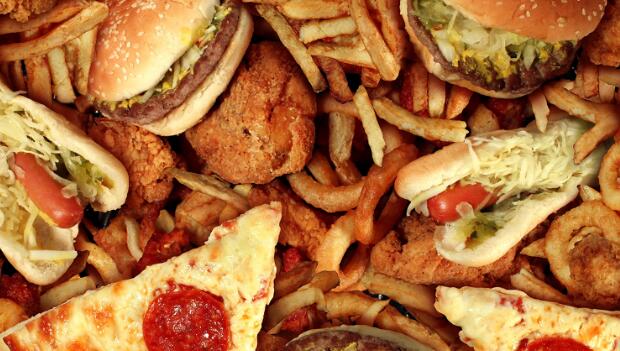
Nutrition is a key component of triathlon training and racing, but the importance of timely, proper fueling is often underestimated. Months of physical preparation go into a race, but how much time and diligence do you put into your nutrition strategy? You wouldn't take off on a long road trip without a fresh oil change and a full tank of gas. Likewise, you don't want to show up at the start line of a long race or training session on "E" and no roadmap to success.
Let's address the ways improper nutrition might be eating your performance—plus, tips on what you need to be feeding your own engine for a smooth ride to the finish line.
We Over-Consume the Wrong Types of Calories—We Fill Our Bellies!
One of the rewards following a long training session is the inevitable feast with friends and training partners. Let's face it—when you accomplish a killer race or long training session, you want to celebrate! While it's important to refuel your body after multiple hours of exercise, it doesn't allow you total impunity to eat whatever you want.
"Athletes sometimes focus on just getting full rather than the actual nutrients that their body needs at a certain time," says Haley Hall, a registered dietitian from Pure Austin Fitness in Austin, Texas.
One of those vital nutrients is carbohydrates, our body's main fuel source.
"Since carbohydrates have gotten such a bad reputation, a lot of athletes are under-consuming carbohydrates and then find that they don't have the energy they need to sustain their exercise," Hall says. "Unfortunately, that can come back to haunt you, and you sometimes end up overindulging on carbohydrates at some point."
Improper nutrition, especially after a race or training session, can also prolong your much needed recovery time, says Adam Sud, a health coach for Whole Foods Market Medical and Wellness Clinic.
Expert Tips: Both Hall and Sud recommend a well-balanced whole food diet instead of relying too much on shakes, bars and recovery drinks. "The more real the food, the better," they both agree, "especially since food is the most natural source of the nutrients your body needs." Chips and salsa may sound great after a run, but be sure to include some healthy rice, beans and leafy greens along with it.
We Under Consume Calories to Lose Weight
For athletes looking to lose weight, your metabolism may actually slow down if you're not eating enough.
"There is a fine line, and if you're consistently under-eating, your metabolism can slow down or, if you're consistently hungry, it can drive you to overeat in the future and, therefore, prevent weight loss," Hall says.
After a training session, not only do you want to consume quality food to restore your glycogen levels, but you also need to repair and rebuild your muscles so that you can adequately recover for the next big training session.
Expert Tips: Both Sud and Hall are fans of oats, sweet potatoes and even quinoa for post-training recovery. Also, refuel at a proper time after a workout. Haley recommends eating within an hour after exercise.


